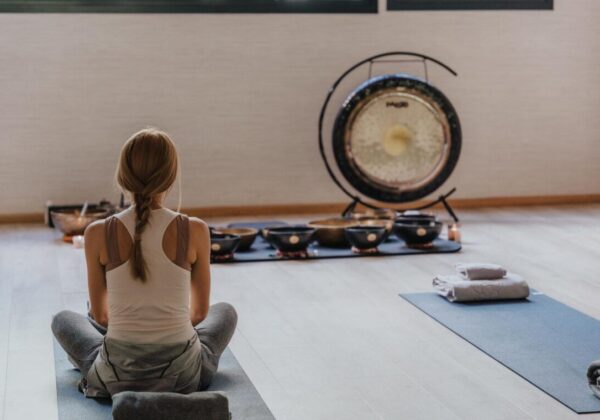
SHA Magazine Be SHA
Food, exercise, sleep: the secrets of a strong inmune system
A strong immune system is key to dealing with viruses and other external threats. But how can we strengthen our immune systems? The first step is doubtless is to try to avoid those external threats in the first place. But in the event that get past our outside defences, we need the best internal defence mechanisms to keep them at bay.
The solution is not complex: it comes down to healthy lifestyle habits.
“There are several factors that weaken or strengthen our immune system. The most obvious is age, what we call immunosenescence: the state of deterioration or dysregulation of the immune system that makes us more susceptible to autoimmune diseases,” says Carlos Gutiérrez, Medical Coordinator at SHA Wellness Clinic.
Regenerative medicine’s goal is to stop this deterioration.
While it is true that ageing is inevitable, many of the solutions to improving our immune system depend on our willpower and decisions to establish healthier habits in our lives. For example:
- Physical activity: get active, stop being sedentary
“Moderate exercise revitalises the immune system and therefore your body’s homeostasis, which improves your health and quality of life,” Gutiérrez says.
The figures speak for themselves: according to the WHO, 27.5% of the world – up to 1.4 billion people – face health risks due to the absence of physical activity. From 2001 and 2016, global physical activity levels have barely budged. But the WHO highlights that the percentage of inactivity in the most advanced countries has risen from 31.6% to 36.8% during that period. The contrast is significant: inactivity levels in low-income countries remained around 16%.
There are countless scientific studies supporting the benefits of physical exercise. They generally recommend between 30 and 60 minutes a day of moderate-intensity aerobic exercise. It is key when it comes to preventing cardiovascular diseases, high blood pressure, cancer, type II diabetes, Alzheimer’s, osteoarthritis, osteoporosis, sarcopenia and other diseases.
The most important thing is to make exercise a habit. In a study by the Human Performance Lab at Appalachian State University, it was found that 30 minutes of walking at an accelerated rate increased the circulation of immune system cells.
So, the first step would be to get active, get out of your chair, start moving. The next is to build physical exercise into your daily routine. And the ideal: to develop a specific personalised plan monitored by the best professionals.
- A balanced diet: the secret is in antioxidants
While all nutrients are important, some are especially relevant in strengthening the immune system through diet. “Eating higher levels of antioxidant nutrients, many of which also have anti-inflammatory properties, is essential in order to achieve a cellular balance between oxidation levels and inflammation for defence,” Gutiérrez says.
Aroudn 80% of packaged food in supermarkets is ultra-processed. And the more they are processed, the worse their nutritional profile, the less satisfying they are and the sharper the glycemic response they produce. We should eat more natural and minimally processed foods instead of ultra-processed foods.
These antioxidants have been proven to be necessary for the proper function of our immune system. Immune cells use up their antioxidant reserves when they defend you. This would explain the improvement in the immune system in adults. A diet rich in vitamin C, echinacea and spirulina are important.
- Quality sleep, the biggest restorative
The role of recovery sleep and good rest in strengthening the immune system tends to be underestimated, Gutierrez says: “During sleep, cells regenerate. Rest is undoubtedly an important regulator of the immune system, since important balancing happens then.”
In a study, researchers at the University of Tübingen in Germany showed how sleep improves the ability of some of the body’s immune cells to bind to their targets, optimising the immune response.
International recommendations for sleep are to maintain fixed schedules, not sleep during the day, not take stimulants, avoid heavy dinners and not eat too close to bedtime, to use warm-coloured lights after sunset and try to sleep in absolute darkness, to avoid all kinds of noise, not overheat your sleep space, ensure ventilation and make sure that the mattress, pillow, and bedding are adequate.
Immune systems under quarantine
The term “quarantine” was coined in the fourteenth century from the Italian “quaranta giorni,” which means forty days. It no longer refers to a specific time, but its purpose is the same: to isolate the population to protect them from infection and prevent them from transmitting disease.
As tempting as it may be, quarantine should not mean letting your health go. Instead, keep up your guard and strengthen your immune system. Despite the difficulties, it can be done. All it takes is willpower.
The first thing to attend to is your physical state. It is obvious that we will not be able to practice a sport, but we can be active.
“We must stay active and not gain weight. It is essential to establish a daily routine and fixed hours for exercise. There are training plans that can help. Many of us find them on the Internet, adapted to our abilities and situation, under the guidance of excellent professionals,” Gutiérrez says.
The same goes for food.
“You can and should eat a healthy diet at home. As the days go by, bad habits will reveal themselves as food deficits. Even if they are minimal, they will have a negative effect on our immune system,” Gutiérrez says.
It’s a matter of filling your pantry with healthy products such as legumes, whole grains, antioxidant-rich food and fruits and vegetables and paying close attention to hydration. Let’s take advantage of the time at home to cook and plan our diet.
We should do the same for sleep, which is closely related to physical activity. Hence the need to activate ourselves to the best of our ability.
“In the same way that it is essential that this type of isolation does not affect us emotionally and that we find things to do, good rest is also essential. It will help us to face each new day in a better mood and with renewed strength,” Gutiérrez says.





